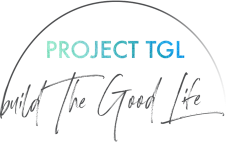It’s 3pm. You have this One Big task you’ve been trying to get around to all day, but it’s just not happening.
You still haven’t managed to finish the big task you were supposed to finish yesterday. Other (small but urgent) tasks keep popping up. When you do get a chance to work on your One Big task for the day, your mind skitters across its surface and refuses to delve in deep. And the more you look at that task, the more you realise you’re going to need longer than you thought to get it done…
Sound familiar?
It doesn’t have to.
In my online course Tweak Your Week, I share several tips about how to make more realistic estimates for how long it will take you to get a job done. Here’s a quick taste.
One mistake many people make is that they pack their daily (and weekly) to-do list to the brim, and don’t leave any white space for life to happen.
Here are three kinds of white space you should build into your week (and before you ask, yes, you should do all three):
- When you predict how much time you need for a particular task or project, add 20% to your prediction. We humans tend to estimate optimistically, for the best case scenario. But best-case scenarios almost never happen, so give yourself some wriggle room.
- Allow 30-60 minutes a day that you haven’t allocated to any particular tasks. Things always come up. Always.
- Give yourself 15 minutes buffer time to sink your head into the project before you expect any deep work to happen. It takes 15-25 minutes for your brain to fully concentrate on what’s in front of you, and only then will you start doing focused work.




